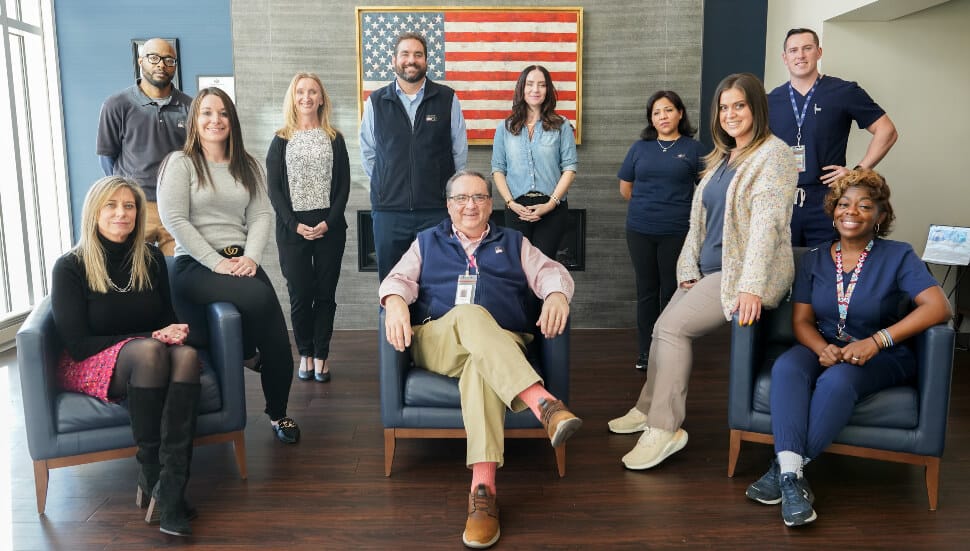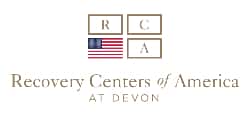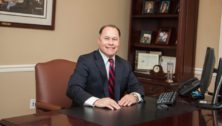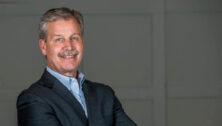Bucks County Leadership: Steve Wicke, CEO, Recovery Centers of America (RCA) at Devon

Steve Wicke, CEO of Recovery Centers of America (RCA) at Devon, spoke with BUCKSCO Today about the differences between growing up in southern Virginia and suburban Maryland in the 1960s and 70s.
He also talked about the importance music played in his life growing up, from going to concerts at Merriweather Post Pavilion with his family to playing in the marching band at Slippery Rock University, where he met his wife.
Steve also discussed how he began working in the drug and alcohol treatment field, his experiences owning and growing his own company, what sets RCA apart from other treatment centers, and the advice he always repeats to his team.
Where were you born, and where did you grow up?
I was born the oldest of three and only son in San Luis Obispo, California. My parents were originally from southern Virginia. My dad was in the Navy, got out in 1955, went to school on the GI Bill in California, and had a career as an industrial engineer. My mom was a schoolteacher and later a social worker.
In 1970, we left southern Virginia and moved to Columbia, Maryland. I call Columbia home – where most of my formative years were.
What memories do you have of growing up in Virginia and Columbia?
They were very different experiences. I went to first grade in 1966 in a small town with two elementary schools. It was still segregated, even though desegregation had been the law of the land in Virginia for going on 10 years. I had two caring parents who came from a different era but raised us in a very accepting manner and taught us to be colorblind.
I think it’s part of the reason my parents left Virginia and went to Columbia. I went from, in essence, a segregated school to a high school that was, even in the late 70s, 50 percent
minority. It was a great experience.
Did you have jobs while you were growing up?
I delivered papers, worked as a lifeguard, and worked at a Boy Scout summer camp for one year. I worked as a lifeguard through college.
What did you take from those jobs that still stay with you today?
Service to others. My entire career has been trying to work in roles that help people and leading organizations that do that kind of work. Clearly, RCA is one of them.
Did you do any sports as a kid or in high school?
I tried everything – I wasn’t really good at any of them, but I played soccer and lacrosse in high school. I got to be okay at lacrosse and played on the soccer team to try to stay in shape for lacrosse in the spring. But I had a great time and learned a lot from it.
What music floated your boat back then?
I am a music nut and was very musical growing up – I played trombone all the way through college and played bass a little bit. I was in all of the musical groups in high school and college. I met my wife in the marching band at Slippery Rock State College. Those were probably the four best consecutive years of my life. Those musical influences have stayed with me my whole life.
Where did that come from, Steve? What drove you to music so passionately?
My mom was very musical. My parents introduced me to James Taylor and The Fifth Dimensions then my interest in music grew and grew and grew.
My first concert was Ray Charles with a full orchestra when I was 11 years old. It couldn’t get much better than that. My parents would take me to Merriweather Post Pavilion in Columbia, one of the first big outdoor venues, and we’d sit on the lawn. Another time, I remember sitting in the second row and seeing the original lineup of Chicago for $12.
I played in a jazz ensemble in college. I had a great professor who introduced me to Miles Davis, John Coltrane and Charlie Parker.
Did you have a favorite artist?
I was a horn player, so Chicago; Earth, Wind, and Fire; Blood, Sweat, and Tears; Tower of Power. But I also love Stevie Ray Vaughn. I love the blues. I love jazz. I’ve seen people like Dave Brubeck live.
Music has always been a big deal in my life. There’s so much we can take from it, whether it’s the emotion or the lyrics. We use music in the treatment programs here at RCA on a daily basis.
Where did you end up going to college, and why there?
I went to Slippery Rock State College. I was in the last class before Slippery Rock became a university. It was five hours away from Baltimore, and I wanted to get a distance away. It’s a great setting. I also wanted to march in a big marching band – their band was 240 people. I visited campus, met the band director, and I was sold.
You said earlier that those were the best four consecutive years of your life. What made your experience at Slippery Rock so meaningful?
I learned to live on my own. I learned that I had to motivate myself, be organized, be disciplined, and get things done. I participated in a number of activities at Slippery Rock and learning how to live a balanced life was important.
I met my wife. The other thing was a great group of people. I had great experiences.
I noticed that you got an MBA in Houston. How did you end up in Houston?
Again, I wanted to go away and do things on my own. I did an internship for my undergraduate degree between my junior and senior years. My best friend from high school was at the University of Texas in Austin, so I interned with Devereux in Victoria, Texas. To make a long story short, I went back to school, finished my degree, and Devereux hired me full-time and my future wife, so we moved to Victoria, Texas.
I rose through the ranks during 14 years at Devereux and got an MBA at the University of Houston. I had some great mentors at Devereux and had the opportunity to go through eight different jobs at the organization in 14 years.
Looking back over your career, who were the people who saw promise in you and appreciated what you were bringing to the table?
The executive director at Devereux. John was a navy pilot who flew fighter jets off aircraft carriers during the Vietnam War. We talked a lot about leadership and how to motivate and encourage people. And there were a couple of other folks along the way at Devereux.
In 1995, I left Devereux and became the executive director at White Deer Run Treatment Center in Allenwood, Pennsylvania. At the end of ’96, I bought the company. It was privately held, one-location, 140-bed facility. I formed a partnership with the guy who was the marketing director at the time, Curt Bryan, and he and I bought the facility.
We built the company through both acquisition and organic growth. In five years, we quadrupled the company. We ended up with 511 inpatient beds in nine facilities across Pennsylvania. When we sold the company, we were one of the first organizations in Pennsylvania to use methadone as a detox protocol. This was in the late 90s before we had buprenorphine and those things.
What did Curt see in you that made him want to partner with you?
I think he saw stability and organization. He was Mr. Outside, and I was Mr. Inside within the partnership. He was the business development guy. He developed and managed the relationships that helped patients find us and helped us grow the business. I was the operations and finance guy. I led the team and managed it internally. We were this perfect yin and yang.
What brought you to Recovery Centers of America?
A cold call out of the blue. We sold White Deer, and I took a couple of years off and traveled the world with my family. That was a great experience. I got to be pretty good at golf. I did a lot of consulting and interim roles.
I took a consulting job in 2011 that was supposed to be six to eight months in Fairbanks, Alaska. I was going to go back and forth – two or three weeks in Alaska, then come home for a week or two. But I ended up doing it for more than five years. It was a great experience – if you haven’t been to Alaska, you’ve got to go.
I was down in Florida in early 2017, playing golf with my son, and I got a cold call from a recruiter. I hadn’t heard of RCA at that point, but I was intrigued by what the recruiter had to say. I talked to Brian O’Neill, and he invited me to visit.
I took the job because, during the recruiting process, I became convinced that RCA would approach treatment differently. And after five and a half years of being here, I think we approach things differently. I’m very, very proud of what we’ve built.
What is it that Recovery Centers of America brings to the table that’s unique and distinctive?
It’s an entire host of interventions – there’s no one single path to recovery for every patient. If we have somebody in a residential setting for 30 days, our job is to set a course and put as many tools in that patient’s recovery toolbox as possible.
For some people, it may be medications to treat addiction. For other people, it’s some other evidence-based intervention. For others, it’s learning about the 12 steps. And for most people, it’s a combination of all those things.
I think that’s what’s unique about RCA. It’s “tailor-made” treatment. We have specific groups for specific folks. I had a conversation with some guys about our age. One said, “We just need some time away from the kids.” There’s a big difference between a 55- or 60-year-old alcoholic and a 23-year-old IV heroin user. So, we’ve created neighborhoods and programming for older adults.
And the biggest part is the people. Everybody who comes in this building isn’t just coming to work – they’re coming here to help and serve people. A significant portion of our team members are folks in recovery themselves, and that’s not just direct care – that’s leadership throughout the entire staff.
We’re at the end of 2022. What are your priorities over the next six months?
More normalcy. I think that’s a tough thing to accomplish in today’s world because of COVID and other things. COVID’s been a tremendous challenge for all of us, the world in general, but we’re a congregate care facility.
People are coming into a closed environment for a significant period of time. I’ve been very proud of the level of safety we’ve been able to operate under. You’ve got people here fighting two life-threatening diseases simultaneously – addiction is a life-threatening disease, and COVID can be a life-threatening disease, especially during the first year.
And your business model, I assume, is bringing people together and helping them help each other.
If we’re doing our job well as a team of treatment providers, patients are getting at least as much out of each other as they are out of us. Recovery is all about connection and mutual support. If you know anything about the 12 steps, it’s about service to others. It’s about fellowship. We try every day to create that environment – a safe, supportive environment here so folks when they’re with us on a residential basis, can get their recovery off to a solid start.
What do you do with all your free time?
I’m a sports fan. I’m a music fan. I have a wonderful wife of 38 years, who I love to spend time with. I have two adult kids, and my son just got married this summer. And we have a great Portuguese Water Dog – she’s our kid at home these days. It’s all about family.
And I love to travel. Our last trip was to Orlando for my son’s wedding at Disney World.
Do you read much?
Not as much as I should. I used to read a John Grisham novel on the beach every summer. I’ve read a couple of Malcolm Gladwell books recently. I’m a big reader of history.
It’s a chaotic world out there, and you see it in your job, Steve. What keeps you hopeful?
We have a great alumni program at RCA. Julie and Bob, our alumni coordinators, constantly communicate with patients who have been here on a residential basis and have left us. They may still be with us as an outpatient patient, but they’re out living their lives.
Every Monday, Julie and Bob put together a collection of messages they’ve received from alumni in the last week, and they send that to our entire team. Or I’ll get handwritten letters. We also have a patient satisfaction program – when people leave treatment, they have the opportunity to leave comments anonymously.
I read those comments, alumni feedback, or notes I get, and I hear about people’s lives. Somebody will specifically point out one member of the team here who had a big influence on them while they were with us. Or I’ll hear, “It’s been a year since I was at RCA, I’ve mended the relationships with my kids, and I’m going to a meeting every day.” It’s those kinds of things.
People recover. Recovery works. I see it in the stories of team members here – people who were in treatment five, 10 years ago who did what they needed to do and came here to get a job. One of the things I’m most proud of is how many people we’ve developed internally and turned into leaders. That gives me hope.
Finally, Steve, what’s the best piece of advice you ever received?
There’s been a few. One of my favorites is, “Just remember, it’s all going to be good in the end, and if it’s not good, we’re not at the end yet.” It’s from a movie – “The Best Exotic Marigold Hotel.”
Another one is, “Never turn down the meeting because you never know what the conversation will be.”
The biggest one for me, and I probably got this from other people, but it’s the guiding philosophy I have here at RCA. I have this conversation with every new group of employees that comes to us, and I repeat it any chance I get with the team. I say, “I only ask two things of you when you come to work every day: One is to come to this place with a sense of urgency to help somebody because there’s plenty of opportunity every day.
And number two is to treat everybody with the dignity and respect you would like to be treated with.” Obviously, our patients, but just as importantly, each other, the team. I think if we could all do a little bit more of that – a little bit more urgency, a little bit more dignity and respect – the world would probably be in a better spot.
Connect With Your Community
Subscribe for stories that matter!
"*" indicates required fields






























